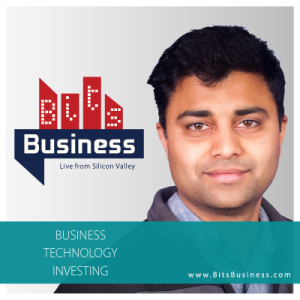Notes : Berkshire Annual Letter – 1987
— January 25, 2014Performance Highlights :
- Net Worth $464 – grown 19.5% in past 23 years
- Book value $2477.47 ( 23% compounded annually )
- Growth pace in business value has moderately out paced that of book value
Why premium on business value to book value – We own some remarkable business which are run by remarkable managers.
On Return on Equity & Invested Capital :
In its 1988 Investor’s Guide issue, Fortune reported that among the 500 largest industrial companies and 500 largest
service companies, only six had averaged a return on equity of over 30% during the previous decade. The best performer among the 1000 was Commerce Clearing House at 40.2%.
Advantages of a High ROIC / ROE business :
- Little capital is required to run these businesses
- They can grow while concurrently making almost all of their earnings available for deployment in new opportunities.
- Usually they are run by good or extra ordinary management
The True Returns : The returns an investor earns on a business depends on the premium he paid for the underlying equity capital. A high ROIC business bought at a substantial premium will still deliver mediocre returns for the investor.
An Eye for Good Business :
Severe change and exceptional returns usually don’t mix. Most investors, of course, behave as if just the opposite were true. That is, they usually confer the highest price-earnings ratios on exotic-sounding businesses that hold out the promise of feverish change. That prospect lets investors fantasize about future profitability rather than face today’s business realities. For such investor-dreamers, any blind date is preferable to one with the girl next door, no matter how desirable she may be.
The Source of best business returns :
- Companies that are doing something quite similar today to what they were doing five or ten years ago.
- Companies that have very little leverage compared to their interest paying capacity (really good businesses don’t need to borrow )
- Companies concentrating on a single winning business theme, is what usually produces exceptional economics. ( few things done exceptionally well )
- Usually these companies tend to produce mundane / non-sexy products and services.
The Source of trouble in business :
- Business that constantly encounters major change also encounters many chances for major error
- Economic terrain that is forever shifting violently is ground on which it is difficult to build a fortress-like business franchise. Such a franchise is usually the key to sustained high returns.
On Spending & Hiring :
Charlie and I do not believe in flexible operating budgets,as in “Non-direct expenses can be X if revenues are Y, but must be reduced if revenues are Y – 5%.”
We neither understand the adding of unneeded people or activities because profits are booming, nor the cutting of essential people or activities because profitability is shrinking. That kind of yo-yo approach is neither business-like nor humane.
On Investment Success :
In my opinion, investment success will not be produced by arcane formulae, computer programs or signals flashed by the price behavior of stocks and markets. Rather an investor will succeed by coupling good business judgment with an ability to insulate his thoughts and behavior from the super-contagious emotions that swirl about the marketplace. In my own efforts to stay insulated, I have found it highly useful to keep Ben’s Mr. Market concept firmly in mind.
On CEO’s as Capital allocators :
Their inadequacy is not surprising. Most bosses rise to the top because they have excelled in an area such as marketing, production, engineering, administration or, sometimes, institutional politics.
Once they become CEOs, they face new responsibilities. They now must make capital allocation decisions, a critical job that they may have never tackled and that is not easily mastered. To stretch the point, it’s as if the final step for a highly-talented musician was not to perform at Carnegie Hall but, instead, to be named Chairman of the Federal Reserve.
Marketable securities held by Berkshire insurance :
(1) long-term common stock investments, (2) medium-term fixed-income securities, (3) long-term fixed income securities, (4) short-term cash equivalents, and (5) short-term arbitrage commitments.
Portfolio Insurance :
An extreme example of what their attitude leads to is “portfolio insurance,” a money-management strategy that many leading investment advisors embraced in 1986-1987. This strategy – which is simply an exotically-labeled version of the small speculator’s stop-loss order dictates that ever increasing portions of a stock portfolio, or their index-future equivalents, be sold as prices decline. The strategy says nothing else matters: A downtick of a given magnitude automatically produces a huge sell order. According to the Brady Report, $60 billion to $90 billion of equities were poised on this hair trigger in mid-October of 1987.
On safe place to park money :
As an alternative to short-term cash equivalents, our medium-term tax-exempts have – so far served us well. They have produced substantial extra income for us and are currently worth a bit above our cost.
We continue to have an aversion to long-term bonds (and may be making a serious mistake by not disliking medium-term bonds as well). Bonds are no better than the currency in which they are denominated, and nothing we have seen in the past year – or past decade – makes us enthusiastic about the long-term future of U.S. currency.
Annual Shareholders Meeting :
Last year we again had about 450 shareholders at our annual meeting. The 60 or so questions they asked were, as always, excellent.

Leave a reply